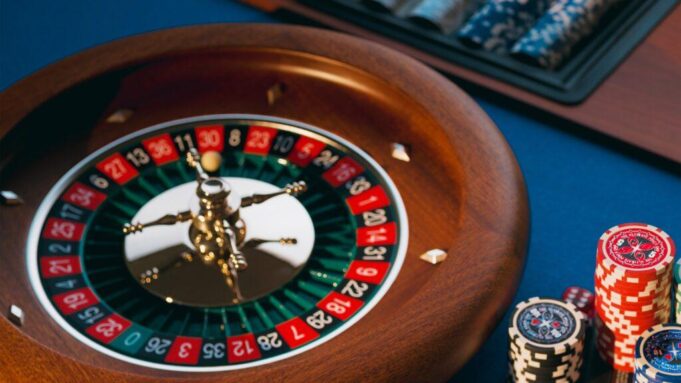First invented in the 18th century, Roulette has become one of the most popular games at casinos around the world, alongside poker and blackjack, but with an additional social element to it. Many players believe roulette to be the most fun game you can play at a casino, and it gives you a great opportunity to meet some new acquaintances.
But how exactly is roulette played? What are its rules? Is there a way to gain advantage if you know the right strategy?
What is Roulette?
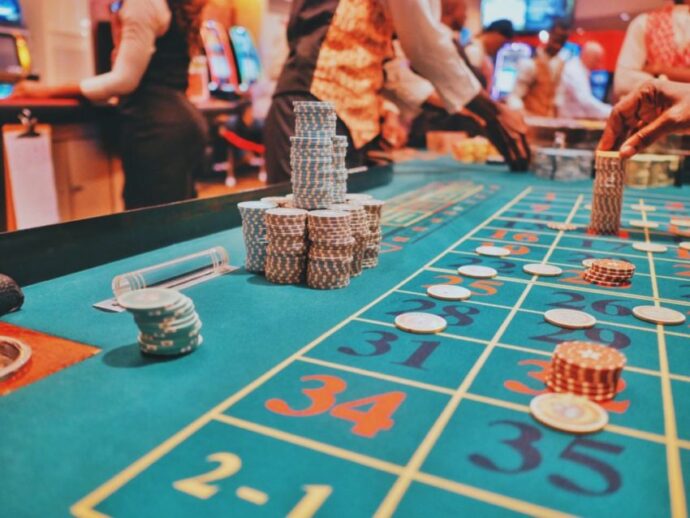
Coming from a French word meaning little wheel, roulette is a classic casino game where players place bets on single numbers, groups of numbers, specific colours, odd and even numbers, high and low numbers, and more variations. The dealer, often called a croupier in Roulette, spins a small wheel with all the numbers on the playing field assigned to individual slots.
The croupier then throws a small ball in the opposite direction of the spinning wheel, around the outer edge of the device. As the ball slowly loses momentum, it eventually falls into one of the designated thirty-seven or thirty-eight slots, depending on the version you’re playing. Once the wheel stops, winnings are paid to players who placed correct bets, and players whose bets did not succeed lose their money. Then, another round begins.
Roulette was first introduced in the 18th century France, and descriptions of the game date back to 1796, Paris. However, at this point roulette was already quite a popular casino game, since regulations from Quebec (modern-day Canada) from 1758 describe roulette as one of the banned games.
As roulette spread, it changed, adapting to the national customs of different countries. As a result, many countries now boast their own version of roulette:
- European – the most popular type of roulette, the characteristic feature is a single “zero” (0) sector.
- American – widespread in the United States and differs from other roulettes by two zeros (00) on the drum.
- French – very similar to European because it has one “zero”, the difference lies in the rules of the game: if “zero” rolls up, the bets are not completely lost, half of the bet is returned to the players.
- Roulette without zero – an alternative type, characterized by a drum that is divided into 36 sectors, no “zero” sector.
How does betting work in Roulette?
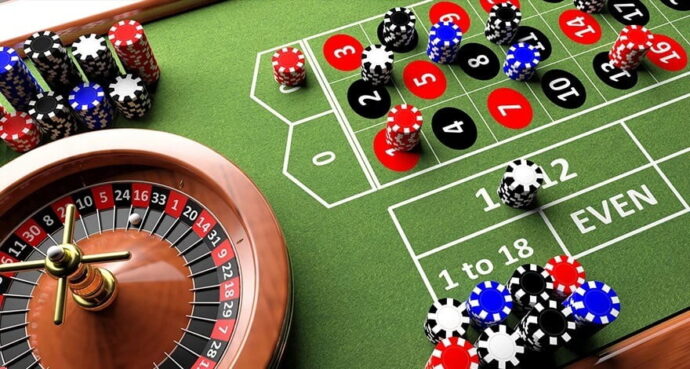
In contrast to many other casino games, there is almost no skill involved in playing Roulette – which makes it a perfect game for beginner players or for people who only come to the casino for their social aspect. Even though there are different forms of Roulette played all around the world, betting works more or less the same in all of them.
In roulette, you can bet on the following spaces:
- Each of the numbers from 0 to 36
- First 12
- Second 12
- Third 12
- Numbers 1 to 18
- Numbers 19 to 36
- Even numbers
- Odd numbers
- Black numbers
- Red numbers
All bets in roulette can be split into two categories: Inside bets and Outside bets.
Inside bets
All the “inside” best are made using spaces with specific numbers on them. These bets, in general, have better odds than so-called outside bets. Let’s take a look at the specific bets and their odds:
- You can bet on any one number, paying 35:1
- You can split your bet between two numbers, paying 17:1
- Three numbers, paying 11:1
- Corner betting, counting all four numbers, paying 8:1
- You can also bet on a six-line, betting on 6 numbers, paying 5:1
Outside bets
In addition to all the inside bets, there are also outside bets. These bets do not involve any specific number, and instead are made on the outside spaces of the game board. These bets include:
- Betting on red or black, paying 1:1
- Betting on even or odd numbers, paying 1:1
- Betting high or low, paying 1:1
- Betting on a whole column (12 numbers), paying 2:1
- 1st 12, 2nd 12, and 3rd 12, paying 2:1
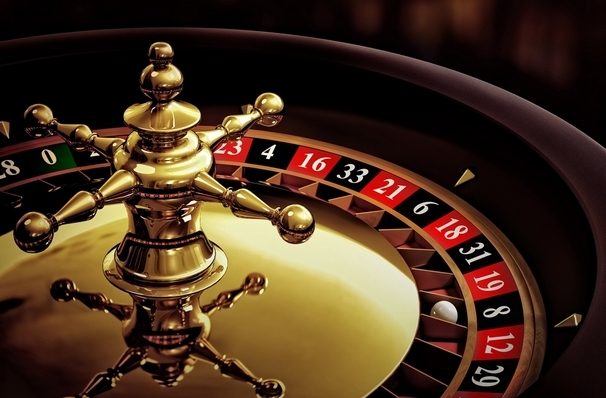
Summary
Using inside and outside bets, you can bet on any number or combination of numbers. Please note that none of the outside bets can be less than the table minimum. The same applies to the sum of the inside bets. The minimum amount applies to each of these areas separately.
Roulette chips
In all types of casinos, the game currency is chips. What exactly are these round coin-like objects? These are pucks of a certain face value, usable throughout the arcade with one exception. A casino game with slightly different rules regarding chips is roulette.
The player who joined the game at the roulette table gives away his chips of a certain value and in return receives other – colored ones, whose value he sets at his own will. The dealer records the fixed amount and applies it until the end of the game. Colored roulette chips were introduced to avoid situations where, for example, seven players bet on the table on one column. In this case, everything can get mixed up. With colored chips, this problem does not exist because all colors have an owner and a value.
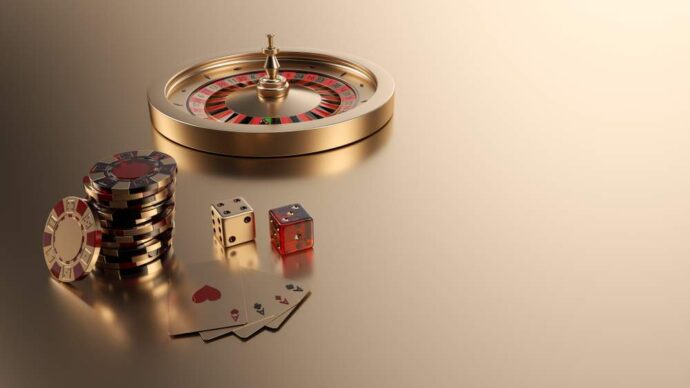
Is there any strategy to Roulette?
The oldest and most popular betting system is Martingale, which is an equal bet doubling system where bets are gradually doubled after each loss until a win is made. This system probably dates back to the invention of the roulette wheel.
Two other well-known systems, also based on betting even money, are the d’Alembert system, in which the player increases his bet by one unit after each loss and decreases it by one unit after each win. The second one is Labouchere system where the player increases or decreases his bets on a predetermined combination of numbers.
The discussion whether there actually is any strategy to Roulette has been going on for centuries, and there is still no real conclusion. In general, each round of roulette is completely isolated and nothing from the previous round influences the results.
You can find out all the latest and most successful strategies for playing Roulette from professional players on Gambling Guardian – a lexicon of knowledge from the world of gambling, verified by specialists.

